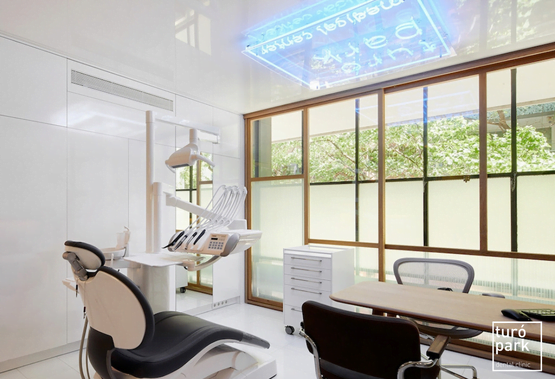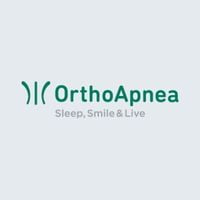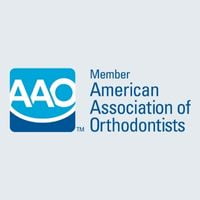Do you need to find an emergency dentist in Barcelona?
Whether you suffer from a broken tooth, an unexpected toothache or have any sort of dental trouble, at Turó Park Clinics you will be able to find a same day appointment for a dental emergency no matter the day.
Just like medical emergencies, dental emergencies require rapid management to relieve pain and to avoid complications. It is therefore important to know how to identify a dental emergency and how to manage it.
What is considered a dental emergency?
A dental emergency is any dental problem that needs immediate treatment in order to alleviate severe pain or save a tooth.
As a result, dental emergencies only consist of the following oral problems:
- Acute infections
- Intense pain
- Severe bleeding
- Orofacial trauma
Fast track your emergency
To book an appointment or speak with one of our friendly team, please get in touch using the options below

How to tell if you’re having a dental emergency
If you have a toothache or have had an accident, you may be wondering if your situation qualifies as a dental emergency. To help you figure it out, here are some signs of dental emergencies:
- Unbearable pain (painkillers no longer are effective)
- Severe bleeding
- Swelling, hematoma
- Fever, dizziness, intense headache
- Numbness or tingling around the mouth
If you have any of these symptoms, you should consult a dentist immediately.
Most common dental emergencies
If you are suffering from a toothache that persists for more than 2 or 3 days, and the pain makes it hard for you to sleep or eat properly, you need to see a dentist immediately. Intense and severe tooth pain that won't go away could mean you have an infection in the root of your tooth and it's important to treat it right away to avoid further complications.
While waiting for dental care, you can alleviate the pain by applying a cold compress or an ice pack on the outside of your mouth or cheek.
Abscesses are infections that occur around the root of the tooth or in the gum area between teeth. They can damage surrounding teeth or tissues, and the infection can spread to your jaw and other areas of your head and neck if not treated in time. Signs and symptoms of a dental abscess include: intense pain that spreads to your ear, jaw and neck on the same side as the affected tooth or gum, unpleasant taste in your mouth, and sensitivity to hot or cold food and drink.
Because of possible serious health problems that can result from an abscess, you should consult your dentist as soon as possible.
If you have a cracked or broken tooth, recover all parts of the broken tooth and call your dentist immediately. If you don't see a dentist quickly, your tooth could be damaged further or become infected, possibly causing you to end up losing the tooth. In the meantime, rinse your mouth with water and apply a compress to the affected area for 10 minutes (until the pain stops).
To alleviate the pain, you can also place a cold compress to the outside of the mouth or cheek near the affected tooth to ease pain. Unfortunately, a broken tooth can only be repaired if the root is left intact. Otherwise, it will have to be extracted and possibly place an implant to replace the tooth.
If your tooth falls out or is knocked out of your mouth, there’s a chance it can be re-implanted back into your gum. But it is very important to consult an emergency dentist as soon as possible. To help preserve your tooth and increase your chances for a successful reimplantation, recover the tooth and rinse the root with water if it is dirty.
Then, place the tooth in a little bit of milk (or physiological serum), and make an appointment with your dentist as soon as possible. A broken tooth has a good chance of being saved if it is treated within one hour after the incident.
Dental emergencies can't wait.
The dentists at Turó Park Clinics are available for emergencies and will do their best to provide you with an appointment as soon as possible according to their availability.

What about orthodontic emergencies?
Sometimes there may be situations of discomfort, pain, or deterioration of braces; sometimes there may be situations where a wire slips out of place and is exposed in contact inside the cheeks or mouth causing irritation.
As with dental emergencies, it is advisable to consult your orthodontist as soon as possible to avoid discomfort or any further complications.
How to proceed
If you need an emergency dental treatment, do not hesitate to book your appointment online or contact us via +34 932 529 729, our English-speaking customer service will be happy to answer any of your questions. Our dental clinic is open 7 days a week every day of the year for emergencies and we will do our best to schedule same day appointments.
If you need to consult a dentist outside the opening hours of our dental office, we also offer video consultation services. You'll receive your diagnosis report, medical prescription, work stoppage certificate or other medical certificates from home.
Remember, a dental emergency should be treated as soon as possible in order to avoid serious dental issues, and by all means, they all must be treated by a dental health professional.
The best way to avoid dental emergencies is to visit your dentist at least once a year, get regular dental check-ups and scalings, and above all maintain impeccable dental hygiene at all times.
Our English-speaking dentists














They talk about us
Our answers to the most frequently asked questions about dental emergencies
What medication should I take while waiting for my dental appointment?
Where do I go if I can't make an emergency appointment with a dentist?
Can a toothache be considered a dental emergency?
Dental societies and organisations










Have a look at the financing options
Don't worry, we take care of everything!